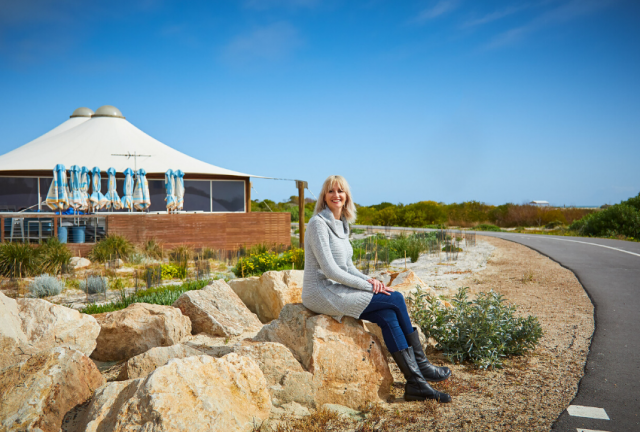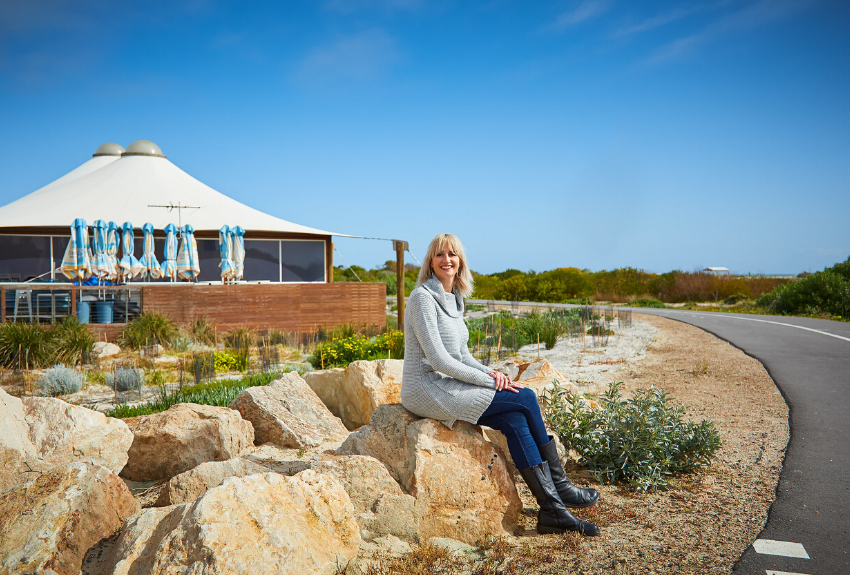Accessibility Tools
- Content scaling 100%
- Font size 100%
- Line height 100%
- Letter spacing 100%
The SANE Blog

When the carer needs care during COVID
In SANE's COVID mental health series, Sarah reminds carers to take time to care for themselves. Here, she shares some of her own self-care tips.
It’s 3 am and I can’t sleep. At the moment, I’m busily trying to juggle my work as a psychologist with family commitments, assisting my parents to care for my brothers (who both have schizophrenia diagnoses), and staying fit and well myself. It's challenging, but I'm grateful that I have family and friends who provide me with regular, unconditional support.
Carers often deal with their own mental and physical health issues and are also often elderly. Because of this, many are considered vulnerable and need to isolate themselves during this pandemic, to stay well.
Unfortunately for many carers, their roles have become even more demanding than usual. I know carers whose loved ones have recently lost support workers due to the current situation. Because of worries about their own health, and the health of their clients, these workers have withdrawn their contracts. Sadly, this means these carers are facing the challenges of COVID alone.
Carers are often so exhausted and busy, they don't reach out and seek help. If they do seek support, sometimes other people don't truly understand what it's like to be a carer for someone living with complex mental health issues. They often have no concept of the daily struggles that can be encountered: being locked out of treatment planning, service providers not understanding how to apply confidentiality and privacy principles, difficulty navigating the mental health system and the National Disability Insurance Scheme (NDIS), and knowing how and where to seek support.
It's been very difficult for carers of people with complex mental health issues to find the appropriate agency to support their loved ones, as many providers still don't understand or accept disability and are slow to change to the new way of working with the NDIS. As a result, a lot of people still haven't received the support they need to help them live independently.
Physical distancing and life in 'lockdown' has been difficult for most of us.
But imagine spending years on end stuck at home. Alone. For almost every hour of the day. Imagine you're not working, and some days you lack motivation and struggle to get out of bed or cook yourself a meal. You don't have visitors – in fact, no one ever really phones you. You might not even have a phone or any internet access, and you don't have much to do. This can be the reality for many – not because of COVID – but because of living with a complex mental health issue.
This is a challenging time for everyone. But while lots of us are dealing with a crisis of this scale for perhaps the first time, many people living with complex mental health issues (and their families and loved ones) already have experience and expertise in living through isolation, poverty, anxiety and loneliness.
In fact, people with mental health issues have often developed fantastic resilience and self-management strategies for dealing with stress – particularly those who've become involved in mental health advocacy. They can be a great source of inspiration and advice on how to manage crises because they often have amazing self-care and self-management strategies for dealing with traumatic events.
Whilst carer advocates have also developed such strategies to some extent, they often put themselves last. And in times of additional crisis, this is very challenging. Carers are significantly more worried about their loved ones during this time, and they are vulnerable too – often experiencing co-existing mental health and physical health needs.
I worry about my parents, who are elderly and have health conditions that make them vulnerable. They are my brothers' primary carers, even though both brothers are receiving comprehensive NDIS packages.
So, what am I currently doing to manage all these competing priorities?
For me, it's really important to maintain my routines as much as I can, maintain a balance of activities, and focus on only managing the things I do have some level of control over.
I usually attend my local gym, but this is now no longer an option. Instead, I've started accessing free YouTube videos created by my local yoga studio – and I'm regularly practising yoga and pilates. Each day, I go for a bike ride around my local area. I'm very lucky to live near the beach, and a ride along the beachfront helps manage both my physical and mental health.
My sister is doing the shopping for my parents, and I'm having downtime each day. I watch Netflix, listen to music, enjoy playing cards with people in my house – I've even taken up playing video games. I'm trying to eat well, limit my viewing of news stories about the pandemic, stick to regular bed and wake times (although this has not worked well today!), and on some days, when I feel overwhelmed, I seek help. I phone someone from my support team and have a chat – this helps put things in perspective and gives me ideas about other strategies to use.
The SANE Forums and Help Centre are also great, free resources that are available to both consumers and carers. There's a Forum specifically for friends and family members, and this is a great way to learn from others with a lived experience of caring for someone with complex mental health issues. You can share strategies, improve resilience, and seek support.
Older carers tend to like face to face contact with other carers, rather than talking via email or even on the telephone. But it's still very important to maintain social connections in this time of physical distancing.
To help my parents stay connected, I've taught them how to use WhatsApp. And I'll often ride my bike past their house on my daily rides, waving through the window and shouting hello. I’m planning to set up a Zoom call on the weekends to connect regularly with the carers I know – some of whom are currently struggling. I hope this will help us share our experiences, learn from one another and – most of all – provide reassurance that we are not alone.
Guest blog by sibling carer and SANE Peer Ambassador, Sarah Sutton
If you (or someone you know) needs support - the SANE Help Centre is open from Monday - Friday, 10am - 8pm AEST. Our team of counsellors are available by phone, web chat and email, so you can comfortably communicate in the way that feels best for you.
We can provide you with counselling, support, information and referrals, and we specialise in assisting adults who identify as having a complex mental health issue, complex trauma or high levels of psychological distress.
We also provide support to the family or friends that care about these people.
Click to visit the SANE Help Centre now.
The SANE Forums and Help Centre are also great, free resources that are available to both consumers and carers. There's a Forum specifically for friends and family members, and this is a great way to learn from others with a lived experience of caring for someone with complex mental health issues.
By accepting you will be accessing a service provided by a third-party external to https://www.sane.org/










